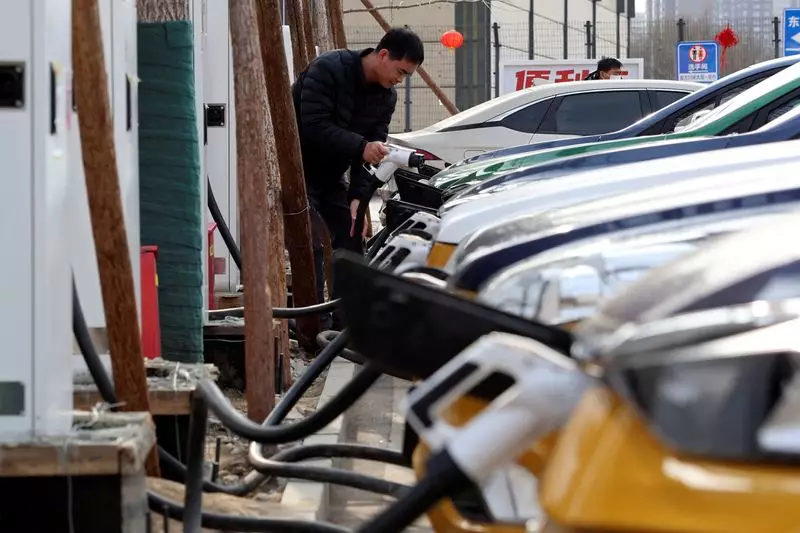China has expressed its disappointment and concern regarding the European Union’s decision to impose tariffs on Chinese electric vehicles. The announcement of additional duties of up to 38.1% on imported Chinese electric cars has sparked tension between the two economic powerhouses. The Chinese government has vowed to take measures to safeguard its interests in response to the EU’s move. This escalation in trade tensions could have significant implications for the global electric vehicle market.
The EU’s decision to impose tariffs on Chinese electric vehicles could result in billions of euros of extra costs for Chinese carmakers. This could disrupt the competitive dynamics of the global electric vehicle market, as Chinese manufacturers have been gaining traction due to their cost advantages. The tariffs could limit the growth of Chinese electric vehicle exports to the EU and hinder the expansion of the Chinese auto industry in international markets.
Market Reactions to Tariffs
The news of the EU tariffs had a mixed impact on Chinese electric vehicle stocks. While some companies saw a surge in their share prices, others experienced declines. The uncertainty surrounding the trade dispute is reflected in the volatile stock movements of Chinese electric vehicle manufacturers. It remains to be seen how the market will react in the long term and whether Chinese companies can navigate the challenges posed by the tariffs.
European automakers, particularly those with significant exposure to the Chinese market, are facing uncertainties due to the trade dispute. The fear of Chinese retaliation and a potential decrease in sales in China have led to concerns among European car manufacturers. The imposition of tariffs could disrupt their supply chains and impact their profitability. European automakers are calling for a resolution to the dispute to avoid further escalation and protect their interests in the Chinese market.
The EU-China trade relationship is at a critical juncture, with the electric vehicle dispute highlighting the complexities of their economic ties. Both parties have expressed a willingness to engage in consultations to find a solution to the escalating trade tensions. It is essential for the EU to demonstrate a strategic and long-term vision in its trade policies with China. The outcome of the trade dispute could have far-reaching implications for the future of the electric vehicle market and international trade relations.
The EU-China electric vehicle trade dispute underscores the challenges and opportunities facing the global automotive industry. The competing interests of Chinese and European automakers, the impact of tariffs on market dynamics, and the need for strategic trade policies are all critical aspects of this evolving situation. As the two economic powerhouses navigate their differences, the future of the electric vehicle market hangs in the balance. It is imperative for both sides to find a mutually beneficial solution to avoid further disruptions in the industry.

